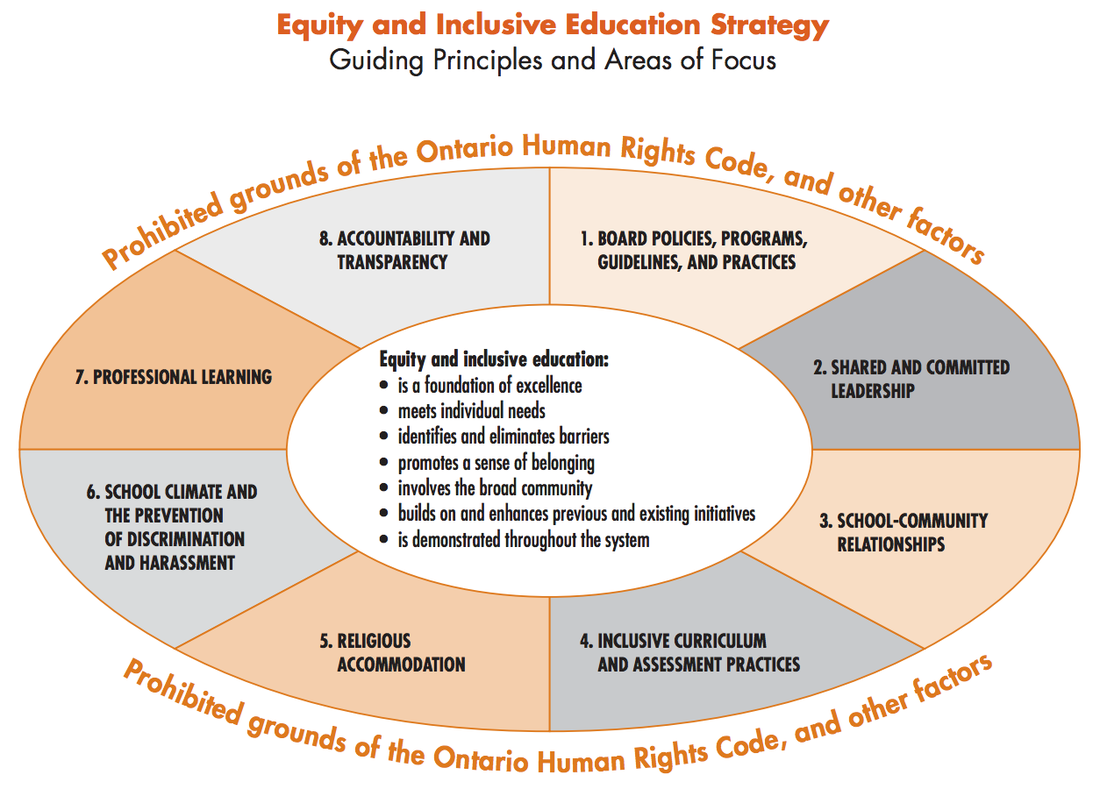
The image posted above comes from the Ontario Ministry of Education’s “Equity and Inclusive Education in Ontario School Guidelines for Policy Development and Implementation” document.
Inclusivity is, as far as I'm concerned, a non-negotiable issue in the education system. I don't think there is any reasonable argument that would indicate that certain people should not be included in school systems, schools, boards, classes, etc.
Equity, however, is a challenging term. In order to make any headway on the equity issue, we must agree on the meaning. Dictionary.com defines equity as "the quality of being fair or impartial."
As I see it, there are two main challenges with equity.
The first challenge with equity is that fairness does not mean equality or sameness. Many people will object that certain actions or decisions are not equitable because they are different. Difference can be equitable. Consider the following: You are given the opportunity to go on an overseas mission trip for 2 weeks in the summer. It will cost $2500. Your older sibling is planning a camping trip with his/her friends for 2 weeks in the summer. It will cost $200. Is it equitable for your parents to send both you and your sibling on your respective trips? Of course. At this moment in time you have a need for $2500 and your sibling has a need for $200. In providing both you and your sibling with the funds for your trips, your parents are behaving in an equitable manner.
The second challenge with equity is that we work in a highly subjective and relational profession where, I would argue, it is impossible to be impartial. This is a challenge that I'm not sure how to get around. We can - as much as possible - attempt to make decisions for our students in an objective and impartial way . . . however, we are human. Our students are human. We have relationships with our students. The connections we have differ. I think the best way to attempt to be equitable is to at least acknowledge that we are not impartial. Admiting the problem is the first step, right?


 RSS Feed
RSS Feed